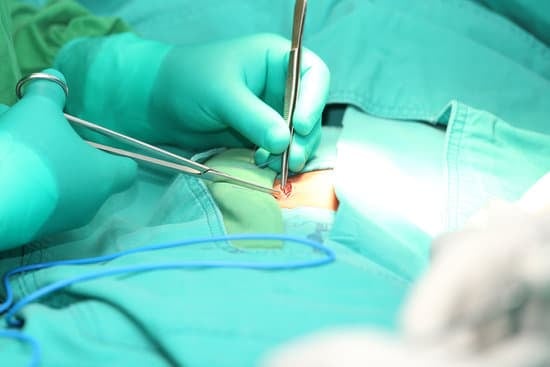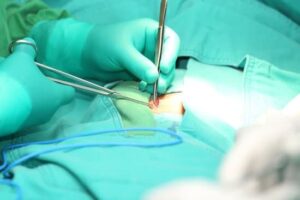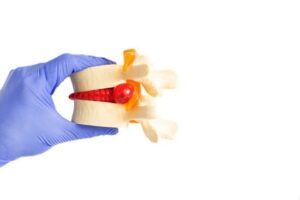Discover Expert Care for Abdominal Hernia in Dubai
Are you or someone you know considering hernia surgery for a femoral hernia? It’s crucial to be well-informed about the procedure and treatment options available. In this comprehensive guide, we’ll provide everything you should know about femoral hernia surgery, including insights from the Best Laparoscopic & Bariatric Surgeon to ensure you’re fully prepared.
A femoral hernia occurs when a part of the intestine or other tissue pushes through a weak spot in the groin or upper thigh area. Although less common than inguinal hernias, femoral hernias primarily affect women and account for about 10% of all hernias. These hernias can cause significant discomfort and often require surgical intervention.




In this article, we will delve into the symptoms and causes of femoral hernias, the diagnostic process, and the different treatment options available. You will gain valuable insights into the surgical procedures, including laparoscopic techniques used by the Best Laparoscopic & Bariatric Surgeon, as well as the recovery process and potential complications.
By the end of this guide, you will have a thorough understanding of femoral hernia surgery, allowing you to make informed decisions about your health and treatment options. Let’s explore all you need to know about femoral hernia surgery and ensure you’re on the right path to recovery.
Understanding the anatomy of a femoral hernia is essential when considering hernia surgery. A femoral hernia occurs when a portion of the intestine or other tissue pushes through a weak spot in the groin area, specifically near the femoral canal. While femoral hernias are less common than abdominal hernia, they tend to affect women more often due to the structure of their pelvis. The Best Laparoscopic & Bariatric Surgeon typically recommends laparoscopic techniques for these types of hernias, as they offer minimal scarring and a quicker recovery. The diagnosis and treatment of femoral hernias are crucial, as untreated hernias can lead to complications such as bowel obstruction, and requiring urgent hernia surgery.
When it comes to hernia surgery and hernia treatment, it’s important to consult with a skilled surgeon to determine the best approach based on the type of hernia, its size, and the patient’s overall health. While an abdominal hernia can occur anywhere along the abdomen, a femoral hernia is located lower in the groin. Both types of hernias can be treated effectively with modern surgical techniques, including laparoscopic surgery, which provides a less invasive option with faster recovery times. Whether you are seeking hernia surgery for a femoral hernia or an abdominal hernia, the Best Laparoscopic & Bariatric Surgeon will guide you through the process and ensure you receive the best care for optimal results.
Femoral hernias are a type of abdominal hernia that can cause discomfort and pain, particularly in the groin or upper thigh area. Recognizing the symptoms early is crucial for effective treatment. The most common signs include a bulge or lump in the groin, pain or discomfort during physical activities, and in some cases, nausea or vomiting if the hernia becomes incarcerated. If you experience any of these symptoms, it’s essential to consult with the Best Laparoscopic & Bariatric Surgeon to receive a proper diagnosis. Through a thorough examination, including imaging tests like ultrasounds or CT scans, your surgeon can determine whether hernia surgery is necessary and identify the most suitable approach for your condition.
When it comes to the diagnosis and treatment of femoral hernias, early intervention can prevent complications such as bowel obstruction. For those seeking a minimally invasive solution, laparoscopic techniques have proven to be highly effective. These procedures offer a quicker recovery time and less postoperative discomfort compared to traditional surgery. Understanding the various options for hernia surgery and hernia treatment is essential for making an informed decision. Whether dealing with a femoral hernia or other forms of abdominal hernia, consulting with the Best Laparoscopic & Bariatric Surgeon ensures you receive the most advanced care available.
Femoral hernias occur when a portion of the intestine or other abdominal hernia tissue pushes through a weakened area in the groin or upper thigh. While the exact cause of a femoral hernia can vary, it is often linked to increased pressure in the abdomen, which can occur due to heavy lifting, chronic coughing, constipation, or even pregnancy. The risk factors for femoral hernias include being female, as women are more likely to develop these hernias, particularly after pregnancy or during the aging process. Other factors that increase the likelihood of developing a femoral hernia include obesity, family history, and previous abdominal hernia surgery. An abdominal hernia can sometimes lead to complications, requiring hernia surgery to repair the damage and alleviate symptoms.
When considering hernia surgery for femoral hernias, it’s essential to consult with an experienced surgeon, such as the Best Laparoscopic & Bariatric Surgeon, who can guide you through the best treatment options. Hernia treatment often involves either open surgery or minimally invasive laparoscopic techniques, which offer quicker recovery times and less pain. Understanding the causes and risk factors of femoral hernias will help you make informed decisions about your health and the appropriate approach to hernia surgery. If you’re experiencing symptoms of a hernia, seeking professional advice on hernia treatment early can prevent further complications and improve your recovery process.
If you or someone you know is considering hernia surgery for a femoral hernia, it’s essential to understand the procedure and available treatment options. A femoral hernia occurs when a part of the intestine or other tissue pushes through a weak spot in the groin or upper thigh, and while it’s less common than inguinal hernias, it can cause significant discomfort and complications. For those affected, seeking advice from the Best Laparoscopic & Bariatric Surgeon is crucial to determine the best course of action. Hernia surgery is typically recommended to prevent further complications, and it’s important to consider both traditional and laparoscopic approaches when making a decision.
In terms of hernia treatment, femoral hernias are often treated through surgical intervention, and the method of surgery will depend on various factors, such as the hernia’s size and location. Laparoscopic hernia surgery has become the preferred method, offering quicker recovery times and reduced risk of complications. For those dealing with abdominal hernia, a consultation with the Best Laparoscopic & Bariatric Surgeon can help ensure that the most effective and minimally invasive treatment is chosen. Whether for femoral or abdominal hernia surgery, understanding the options available and discussing them with an expert is key to achieving the best possible outcome.



If you or someone you know is considering hernia surgery for a femoral hernia, it’s important to understand the procedure and the available hernia treatment options. A femoral hernia occurs when a part of the intestine or other tissue pushes through a weak spot in the groin or upper thigh, and although it is less common than other types of hernias, it can lead to significant discomfort. hernia surgery is often necessary for patients suffering from this condition, as it can relieve pain and prevent further complications. The Best Laparoscopic & Bariatric Surgeon will typically use minimally invasive laparoscopic techniques to repair the hernia, which leads to faster recovery times and less post-surgical pain compared to traditional open surgery.
In the surgical procedure for femoral hernia repair, the Best Laparoscopic & Bariatric Surgeon will access the affected area through small incisions and use advanced tools to reposition the hernia and reinforce the weakened tissue. This type of hernia surgery is often preferred due to its precision and reduced risk of complications. Understanding the options for hernia treatment, including both laparoscopic and open surgical approaches, is essential for making an informed decision. Whether dealing with a femoral or abdominal hernia, seeking the right expert for hernia surgery is key to ensuring the best outcomes and a smooth recovery process.
Recovery and aftercare following hernia surgery is a crucial part of the healing process. After undergoing surgery for a femoral or abdominal hernia, it’s important to follow the guidance provided by your healthcare provider to ensure a smooth recovery. The Best Laparoscopic & Bariatric Surgeon will typically recommend rest and limited physical activity for the first few weeks. You may experience some discomfort, swelling, and bruising around the surgical site, which is normal. Proper aftercare can help prevent complications, reduce the risk of recurrence, and promote faster healing. Following a balanced diet, staying hydrated, and avoiding heavy lifting during the recovery period are key factors to support your healing process.
As you recover from your hernia surgery, it’s important to monitor any changes in your condition and communicate with your healthcare team. The Best Laparoscopic & Bariatric Surgeon can provide valuable guidance on what to expect in terms of recovery milestones and when you can return to normal activities. hernia treatment is not just about the surgery itself but also about ensuring a proper recovery to minimize risks. Whether you are recovering from femoral or abdominal hernia surgery, adhering to the prescribed aftercare instructions will help you achieve the best outcomes and prevent future complications.
Femoral hernia surgery, like any surgical procedure, carries some potential risks and complications that patients should be aware of before making a decision. The most common risks include infection, bleeding, and anesthesia complications. Additionally, there is a possibility of damage to surrounding tissues or nerves, which could lead to chronic pain or other long-term issues. In some cases, a femoral hernia could recur after surgery, requiring additional intervention. For those considering surgery, it’s essential to consult with the Best Laparoscopic & Bariatric Surgeon who can help assess the best approach for your specific case, whether laparoscopic or traditional methods. Understanding the risks associated with this surgery is crucial for making an informed decision about hernia treatment.
Patients undergoing femoral hernia surgery should also be aware of complications related to abdominal hernia surgery. These include the risk of hernia recurrence, bowel obstruction, or issues arising from scarring. Working with the Best Laparoscopic & Bariatric Surgeon ensures a more precise and effective approach to surgery, particularly when opting for minimally invasive laparoscopic methods. If you’re exploring hernia surgery, it’s important to discuss the potential complications and recovery process with your surgeon so you can make well-informed choices about your hernia treatment and long-term health outcomes.
Recovering from femoral hernia surgery requires careful attention to both the physical and mental aspects of healing. One of the most important steps in ensuring a successful recovery is following the post-operative care plan provided by your healthcare team, including advice on activity levels, wound care, and managing pain. Engaging in light physical activity, as recommended by your doctor, can also help speed up the recovery process and reduce the risk of complications. If you’ve undergone hernia surgery, especially in cases of abdominal hernia, it’s essential to avoid heavy lifting or strenuous activities for several weeks to give your body the time it needs to heal. Additionally, choosing the Best Laparoscopic & Bariatric Surgeon ensures that you receive expert care and guidance throughout your recovery journey.
For those seeking optimal recovery from hernia surgery, following your surgeon’s advice and attending follow-up appointments are key to avoiding potential setbacks. Ensuring proper nutrition, staying hydrated, and adhering to prescribed medications can help promote healing and prevent complications. It’s also important to be aware of potential signs of infection or complications following hernia treatment, such as increased swelling, redness, or fever. By committing to these recovery tips and seeking guidance from the Best Laparoscopic & Bariatric Surgeon, you can minimize recovery time and achieve the best possible outcome after your femoral hernia surgery.
Early detection and treatment of femoral hernia are crucial for preventing complications and ensuring a smoother recovery. If left untreated, a femoral hernia can lead to serious issues such as strangulation, where the blood supply to the intestine is cut off, which could lead to severe infections or tissue damage. Seeking prompt medical attention and consulting with the Best Laparoscopic & Bariatric Surgeon is essential for determining the best course of action. hernia surgery, including laparoscopic procedures, offers minimally invasive solutions for faster recovery and less postoperative discomfort. By recognizing the signs early and opting for timely hernia treatment, patients can avoid severe complications and improve their overall health outcomes.
abdominal hernia cases, including femoral hernias, should not be ignored, as they can progressively worsen over time. hernia surgery remains the most effective treatment option, with modern advancements like laparoscopic techniques providing patients with a quicker recovery and reduced risk of recurrence. Consulting with the Best Laparoscopic & Bariatric Surgeon ensures that you receive expert care tailored to your specific needs, whether it’s abdominal hernia or any other form of hernia. Early intervention through effective hernia treatment can significantly enhance recovery times, minimize risks, and ultimately improve your quality of life.


Schedule your appointment quickly and easily with just a few clicks.




Prof. Dr. Ahmed Hassn is a UK trained highly qualified Best Laparoscopic & Bariatric Surgeon with more than 21 years of consultant experience in his field.
Don’t miss our future updates! Get Subscribed Today!
©2024. Prof. Dr. Ahmed Hassn. All Rights Reserved.